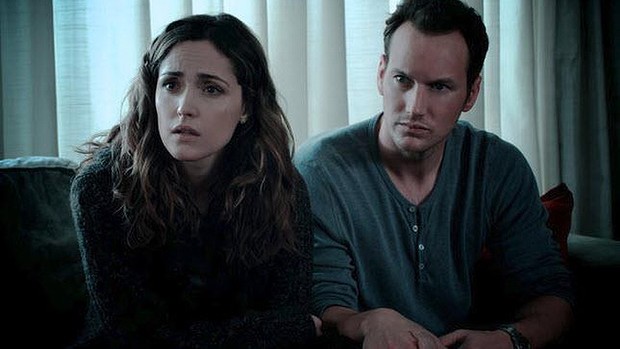by Garry Maddox
Rose Byrne and Patrick Wilson star in Insidious.
As a horror movie by an Australian director topped the American box office charts on the weekend, there was an impressive debut for a Saudi Arabian film by a director who trained in Sydney.
James Wan’s Insidious Chapter 2 took $US41 million ($44.3 million) – the second hit in two months for the Melbourne-raised director after The Conjuring took $US135 million in North America and another $US135 million elsewhere in the world.
According to the website Box Office Mojo, it is only the second time a director has had two movies open with more than $US40 million at the US box office in the same year — the Wachowski siblings did it with The Matrix Reloaded and Revolutions in 2003. Just as impressively, the Insidious sequel had one of the best debuts for a supernatural horror film despite costing just $US5 million to produce.
 Film director James Wan. Photo: Sahlan Hayes
Film director James Wan. Photo: Sahlan Hayes
In a fast-rising Hollywood career since creating the first Saw movie with Leigh Whannell – the writer of Insidious Chapter 2 and friend since they studied media arts at Royal Melbourne Institute of Technology together – Wan is currently directing Fast & Furious 7.
Advertisement
In arthouse cinemas, Haifaa Al Mansour’s Wadjda took more than $US40,000 in three cinemas, which The Hollywood Reporter called “arguably the best showing of the weekend among new limited releases”.
The drama, Saudi Arabia’s first ever entry in the Oscar race for best foreign language film, is about a 12-year-old girl who dreams of having a bicycle in a segregated country where that was discouraged until recently as not being virtuous for women.
Haifaa Al Mansour, Saudi Arabia’s first female filmmaker. Photo: Kate Geraghty
 When Wadjda was selected in competition at this year’s Sydney Film Festival, Al Mansour told Fairfax Media that she often had to sit inside a van and speak to her actors via walkie-talkie lest she be visible on the streets of Saudi Arabia.
When Wadjda was selected in competition at this year’s Sydney Film Festival, Al Mansour told Fairfax Media that she often had to sit inside a van and speak to her actors via walkie-talkie lest she be visible on the streets of Saudi Arabia.
Conservative relatives were so concerned about her directing films that they wrote letters to her father suggesting she was being corrupted.
To became the country’s first female filmmaker, she spent a year studying for a masters degree in film at the University of Sydney.
“I had a great time,” she said. “I had my first son. I went to school when I was pregnant and my professors were very supportive.”
As one of 12 children growing up in a liberal family in a small town, Al Mansour’s film education started with movies on video and she later made corporate videos for an oil company.
“To be a woman in Saudi is very hard,” she said. “You don’t feel like your voice matters.
“I wanted to do something just for me as therapy, just to find my voice. So I decided to make a short.”
